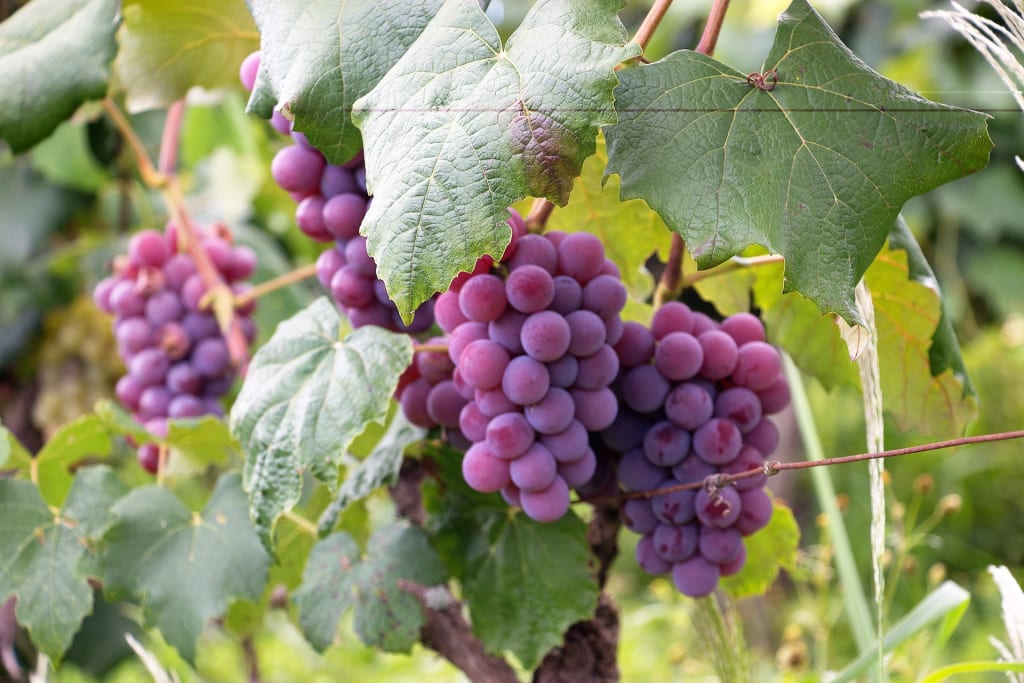
Rastafarianism, a spiritual and cultural movement that emerged in Jamaica during the early 20th century, is characterized by its distinct beliefs, practices, and lifestyle choices. With a strong emphasis on African heritage, Rastafarianism promotes social justice, equality, and the pursuit of spiritual enlightenment. One notable aspect of Rastafarianism is its dietary principles, which play a crucial role in adherents' daily lives.
Rastafarian dietary principles are rooted in a holistic approach to health and spirituality. Rastas strive to consume natural, unprocessed foods that are believed to nourish the body and connect them with their African roots. These principles not only govern what Rastas eat but also encompass broader perspectives on food production, sustainability, and ethical considerations.
The focus of this blog post is to explore why Rastafarians avoid grapes as part of their dietary practices. While grapes may seem like a harmless fruit to many, Rastas attribute deep symbolism to their exclusion from their diet. By understanding the reasoning behind this dietary choice, we can gain insights into the spiritual and cultural significance that grapes hold within the Rastafarian belief system.
Rastafarian Beliefs and Symbolism
Rastafarianism emerged in the early 20th century in Jamaica, inspired by the teachings of Jamaican activist Marcus Garvey. Rastafarians view themselves as a spiritual movement, often referred to as "Rastas," seeking to reconnect with their African roots and challenge societal norms influenced by colonialism. Central to Rastafarian beliefs is the idea that Emperor Haile Selassie I of Ethiopia, formerly known as Ras Tafari, is the divine incarnation of God on Earth.
Nature holds significant symbolism in Rastafarianism, representing purity, vitality, and the interconnectedness of all living beings. Fruits, in particular, carry symbolic meanings. They are seen as gifts from the Earth, representing abundance, life, and spiritual nourishment. Each fruit is believed to possess unique spiritual properties that can influence one's physical and mental well-being.
Rastafarians place great importance on consuming natural and unprocessed foods, known as "Ital" foods. The term "Ital" is derived from the word "vital" and signifies the vital life force inherent in fresh, organic, and unadulterated foods. By consuming Ital foods, Rastas aim to maintain a harmonious connection with nature and honor the life force within their bodies.
The emphasis on natural and unprocessed foods stems from the belief that such foods contain higher levels of vital energy, or "life force," which promotes physical health and spiritual well-being. Rastafarians perceive processed and chemically altered foods as impure, lacking the life force necessary to sustain their spiritual connection.
The consumption of natural foods is not only seen as beneficial for the individual but also reflects a broader commitment to environmental sustainability and respect for the Earth. Rastafarians often engage in organic farming practices and advocate for the protection of natural resources, aligning their dietary choices with their broader ecological and spiritual values.
The Grape Ban: Historical Context
To understand the reasons behind the exclusion of grapes in Rastafarian dietary practices, it is essential to delve into the historical context of the Rastafarian movement. Rastafarianism emerged in Jamaica during the early 20th century as a response to the social and political realities faced by the Afro-Jamaican population. The movement gained traction among marginalized communities, particularly those living in impoverished areas.
The exclusion of grapes from the Rastafarian diet can be traced back to the historical experiences and struggles of the African diaspora. Rastafarians perceive grapes as a symbol of European colonialism and the exploitation of African labor. During the era of transatlantic slavery, African people were subjected to backbreaking labor on European-owned plantations, including vineyards.
Grapes, often associated with European wine production, became symbolic of the oppressive systems that Rastafarians sought to resist. As a result, the consumption of grapes and grape products is avoided as a means of rejecting the remnants of colonialism and its associated exploitation.
Influence of African culture and traditions on Rastafarian beliefs
Rastafarianism draws heavily from African culture and traditions, seeking to reconnect with the African heritage that was disrupted by slavery and colonialism. The influence of African culture is reflected in various aspects of Rastafarian beliefs, including their dietary practices.
In many African cultures, ancestral connections, spiritual rituals, and the symbolism of certain foods hold great significance. Rastafarians embrace these cultural elements, incorporating them into their own belief system. This includes the symbolic associations attached to fruits like grapes, where cultural and historical contexts intertwine.
By excluding grapes from their diet, Rastafarians actively reject the vestiges of European influence and uphold African cultural identity. The avoidance of grapes serves as a powerful symbol of resistance against the historical exploitation of Africans and a commitment to reclaiming their African roots.
Grape Avoidance and Babylonian Connection
In Rastafarianism, Babylon holds deep symbolic meaning. Babylon represents a system of oppression, corruption, and materialism that seeks to devalue African culture and suppress the spiritual awakening of Rastafarians. Derived from biblical references, Babylon serves as a metaphorical representation of the oppressive forces in the world that Rastafarians strive to resist.
Grapes, often associated with Babylonian practices, are avoided by Rastafarians as a means of resisting the influence of Babylon. The avoidance of grapes signifies a rejection of the luxurious and decadent lifestyle associated with Babylonian culture. Rastafarians view the excessive consumption of grapes and their transformation into wine as representative of materialism, intoxication, and spiritual distraction.
By abstaining from grapes, Rastafarians aim to distance themselves from the allure and allurements of Babylonian practices. They seek to maintain a clear and focused mind, free from the intoxicating influences that hinder their spiritual growth and connection with the divine.
The spiritual significance of rejecting Babylonian influences in Rastafarian culture
The rejection of Babylonian influences holds great spiritual significance within Rastafarian culture. It reflects a commitment to living a righteous and spiritually conscious life. By avoiding grapes, Rastafarians symbolically detach themselves from the materialistic and corruptive aspects of Babylonian culture, allowing them to align their lives with principles of righteousness, justice, and purity.
For Rastafarians, resisting Babylon means actively working towards personal and collective liberation from oppressive systems and ideologies. It is an integral part of their spiritual journey and a means to achieve spiritual enlightenment, social justice, and a connection with their African heritage.
By rejecting the symbolic trappings of Babylon, including the avoidance of grapes, Rastafarians uphold their values of simplicity, humility, and spiritual purity. It serves as a constant reminder to remain steadfast in their commitment to resisting the forces that seek to compromise their spiritual and cultural integrity.
Grape Symbolism in Rastafarianism
In the Rastafarian belief system, grapes hold symbolic significance that extends beyond their physical attributes. They are often associated with notions of wealth, excess, and decadence. Rastafarians view grapes as representative of a materialistic and spiritually distracting lifestyle that goes against their principles of simplicity and spiritual consciousness.
Throughout history, grapes have been associated with wealth, abundance, and luxury in various cultures. They are often used to produce wine, a drink that has been linked to opulence and indulgence. The association of grapes with materialism and excess aligns with the broader symbolism of Babylon, where worldly desires and material possessions are prioritized over spiritual growth and righteousness.
Rastafarians perceive grapes as a symbol of decadence and spiritual distraction due to their association with the materialistic lifestyle promoted by Babylon. They view the excessive consumption of grapes and the transformation of grapes into wine as a diversion from the path of spiritual enlightenment.
For Rastafarians, spiritual growth and connection with the divine are of utmost importance. The indulgence in material desires and distractions, symbolized by grapes, hinders their progress on the spiritual journey. By avoiding grapes, Rastafarians aim to maintain a clear and focused mind, free from the worldly distractions that can hinder their spiritual development.
By eschewing grapes, Rastafarians consciously distance themselves from the allure and trappings of a materialistic society. They prioritize spiritual consciousness, simplicity, and a humble lifestyle over the pursuit of material wealth and excess.
Alternative Dietary Choices in Rastafarianism
Rastafarians emphasize the consumption of natural, unprocessed, and plant-based foods. Some of the preferred fruits in their diet include mangoes, papayas, bananas, coconuts, guavas, and oranges. These fruits are celebrated for their abundance of nutrients, flavors, and their connection to the natural world. In terms of vegetables, Rastafarians often incorporate foods such as yams, sweet potatoes, callaloo (a leafy green), okra, and pumpkin into their meals.
The preferred fruits and vegetables in the Rastafarian diet offer both nutritional and spiritual benefits. Nutritionally, these foods are rich in essential vitamins, minerals, antioxidants, and dietary fiber, supporting overall health and well-being. They provide sustenance and energy, promoting vitality and a balanced lifestyle.
From a spiritual perspective, Rastafarians believe that consuming natural and unprocessed foods connects them to the Earth and the divine life force within all living beings. By choosing these foods, they strive to maintain a harmonious relationship with nature and honor the spiritual essence of their African roots.
Examples of Rastafarian-friendly meals excluding grapes
Ital Stew: A hearty and flavorful vegetable stew made with a variety of vegetables such as pumpkin, sweet potatoes, yams, carrots, and cabbage, simmered in coconut milk and seasoned with herbs and spices.
Rasta Salad: A refreshing salad combining fresh and crisp lettuce, tomatoes, cucumbers, bell peppers, and avocados, dressed with a simple vinaigrette made from olive oil, lime juice, and herbs.
Ackee and Callaloo: A traditional Jamaican dish made with boiled and sautéed ackee (a tropical fruit) and callaloo, a leafy green similar to spinach. It is often served alongside boiled yams and plantains.
Coconut Rice and Peas: A flavorful dish made with coconut milk, red kidney beans, and seasoned rice, typically served with a side of steamed vegetables like carrots and broccoli.
These examples showcase the diversity and creativity of Rastafarian-friendly meals that exclude grapes. By focusing on natural and plant-based ingredients, Rastafarians not only nourish their bodies but also strengthen their spiritual connection with nature and their African heritage.
Conclusion
This blog post has delved into the reasons behind Rastafarian grape avoidance and the symbolism associated with it. We explored the historical, cultural, and spiritual factors that shape the dietary choices of Rastafarians. Let's recap the main points discussed:
Firstly, Rastafarianism is a spiritual and cultural movement that emerged in Jamaica, seeking to reconnect with African roots and challenge societal norms influenced by colonialism.
The exclusion of grapes from the Rastafarian diet can be understood within the historical context of African diaspora experiences, where grapes symbolize European colonialism and the exploitation of African labor.
Moreover, grapes are seen as representative of Babylonian practices, associated with wealth, materialism, and excess. Rastafarians reject the allure of Babylon, aiming to resist the oppressive systems and distractions that hinder their spiritual growth.
The dietary choices of Rastafarians are deeply rooted in their cultural and spiritual beliefs. They prioritize natural, unprocessed foods that align with principles of simplicity, vitality, and a harmonious connection with nature.
Understanding and respecting the dietary practices of different cultures and religions is essential. It allows us to appreciate the diversity of human experiences and foster empathy and inclusivity.
In conclusion, Rastafarian grape avoidance reflects a complex interplay of historical, cultural, and spiritual factors. By respecting and understanding these practices, we can deepen our knowledge and appreciation of diverse belief systems, promoting a more inclusive and tolerant society.






Comments
There are no comments for this story
Be the first to respond and start the conversation.